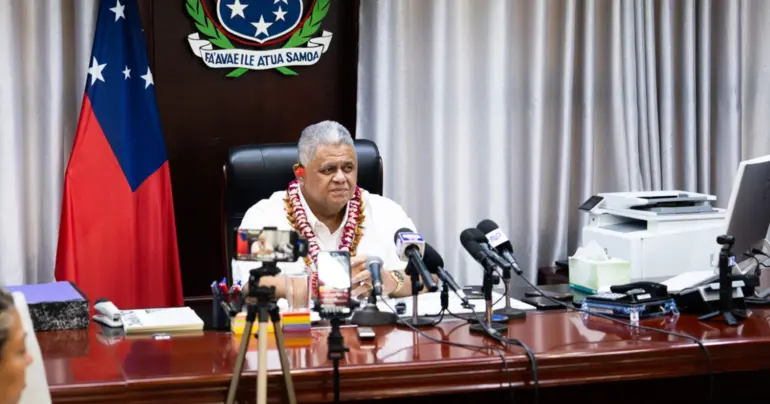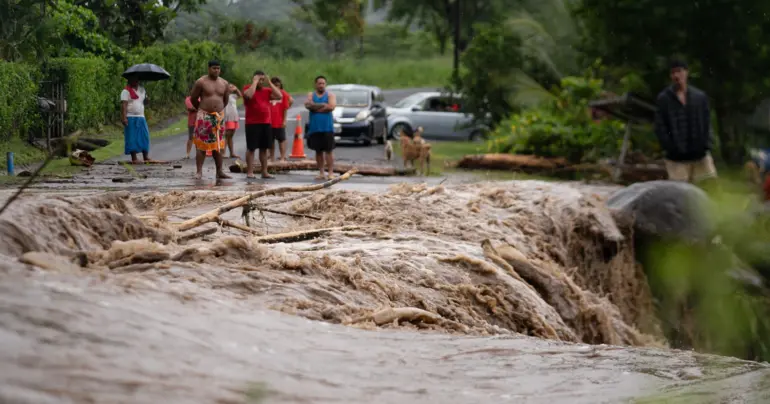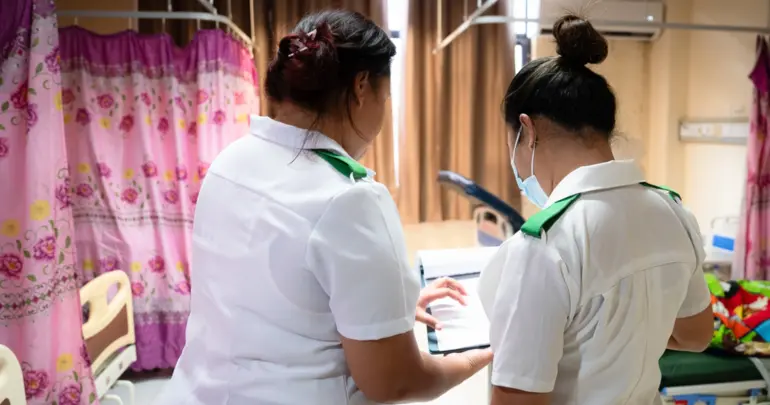Underwater volcano unlike Tonga's: retired geologist
 By Fuimaono Lumepa Hald
•
17 August 2022, 1:00PM
By Fuimaono Lumepa Hald
•
17 August 2022, 1:00PM
An underwater volcano in the Manu’a group of islands in American Samoa is not like the one in Tonga but could create a tsunami if its crater collapsed, says a retired geologist.
Longtime Savai'i resident and 93-year-old retired Australian geologist, Tuapou Warren Jopling pointed out the volcanic hotspot in American Samoa not like the underwater one in Tonga that erupted last December.
However, the retired geologist said it could still pose danger if its crater collapses and triggers a tsunami.
"It is a very large volcano which rises 4 and a half kilometres from the sea floor, the crater is about 400 metres in depth," he said.
"So it is called the hot spot and it is continuously active. Twenty years ago it was quite active. “It is 45 kilometres east of Ta'u, the problem is that should it collapse it will cause a local tsunami.
"The hot spot is stationary but over the last several hundred years it has moved from the eastern point of Tutuila on the island of Ta'u, and prior to that it was the end of the volcano which was close to Savai’i.
"So it is currently the only active volcano of the chains of volcanoes in Samoa. It has a history of the activity continuing and much more.”
Tuapou added that unlike the one in Tonga, this one in American Samoa is not highly explosive, but authorities nonetheless need to monitor.
"Savaii has been getting periodic eruptions as there was one in 1905 and the one before that was in the 1760s," he said.
"So the pacific plate is moving towards the north west direction at 7.1km per million years but the hot spot has changed position in the last five and half million years three times.”
The United States Geological Survey (USGS), in a statement released 13 August 2022, reported no significant changes over the past 24 hours.
“No significant changes over the past 24 hours. Earthquake swarm in the Manuʻa islands of American Samoa continue, most likely related to either Ta’ū volcano or the nearby submarine Vailuluʻu volcano.”
In its analysis of the situation in American Samoa, the USGS said the activity reported to date suggests a local volcanic source.
“Due to limited earthquake monitoring equipment, the exact location of these earthquakes is currently unknown,” the USGS analysis reads.
“Not all earthquake swarms result in eruptions. Current low-level earthquake activity may continue and vary in intensity for days to months without an eruption.
“It is also possible that the swarm is an early precursor to an eventual eruption. At this time, we cannot determine which of these possibilities is more likely.
“Volcanoes in American Samoa are similar to those in Hawaii. If activity escalates to an eruption, it will most likely include slow-moving lava flows or low-level explosions of lava that are localised to a small area.”
Expressing similar sentiments to the Samoa-based retired geologist Tuapou, the USGS said in its analysis that an eruption in American Samoa similar to the Hunga Tonga–Hunga Ha'apai in Tonga earlier this year is “extremely unlikely” as it is a different type of volcano.
“Volcanoes in Tonga erupt much more explosively than ones in American Samoa and Hawaii. Scientists are investigating earthquakes and reports of other activity.”
 By Fuimaono Lumepa Hald
•
17 August 2022, 1:00PM
By Fuimaono Lumepa Hald
•
17 August 2022, 1:00PM











